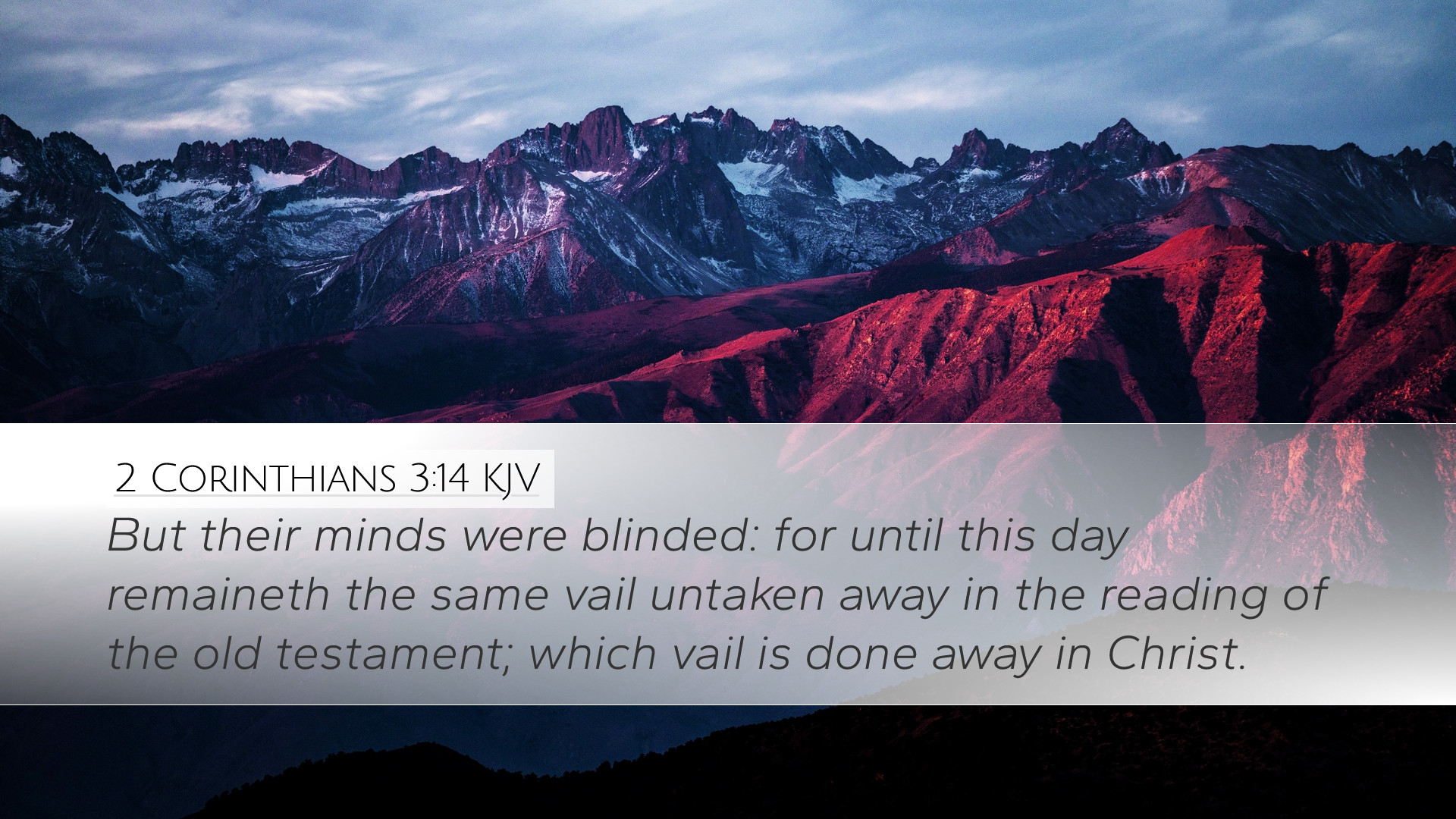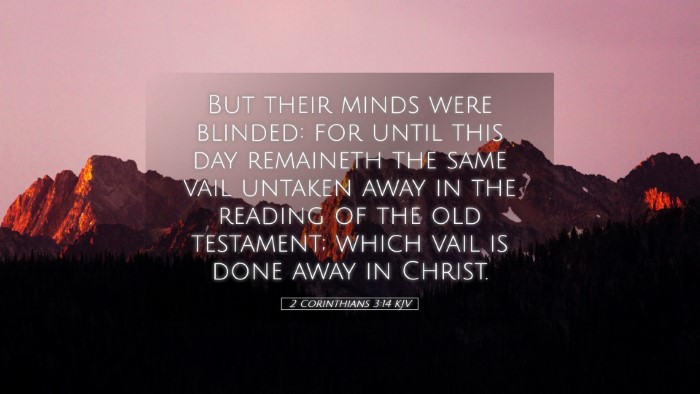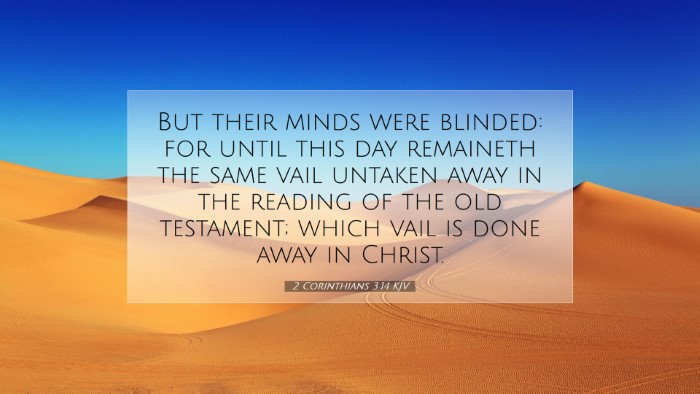Commentary on 2 Corinthians 3:14
Verse Text: "But their minds were blinded: for until this day remaineth the same veil untaken away in the reading of the old testament; which veil is done away in Christ."
Introduction
This verse encapsulates a significant theological contrast between the old covenant, represented by the Law, and the new covenant established through Jesus Christ. The Apostle Paul, in his letter to the Corinthians, speaks to the transformative power of Christ that removes spiritual blindness and unveils the truth of God.
Commentary Insights
Understanding the Veil
Matthew Henry notes that the "veil" symbolizes the spiritual blindness that affects those who adhere strictly to the Old Covenant without recognizing its fulfillment in Christ. The Jews, in particular, exhibited a refusal to see the deeper spiritual realities that the Law foreshadowed.
Albert Barnes emphasizes that this veil signifies a lack of understanding and insight into the meaning of the Scriptures. The failure to grasp the significance of Christ leads to a continued separation from the deeper truths of God.
Historical Context
Adam Clarke elaborates on the historical setting, reminding readers that the Old Testament was meant to guide the people to Christ. However, due to the hardness of their hearts and traditions, the majority failed to recognize the Messiah when He came.
Spiritual Implications
Matthew Henry continues by reflecting on how this blindness is not merely a historical issue but a present reality for many today who cling to religious forms without encountering the living Christ.
Albert Barnes suggests that this blindness stems from an unwillingness to submit to the Gospel, creating a spiritual veil that prevents understanding. The liberation offered by Christ's death and resurrection is essential for any meaningful interpretation of the Old Covenant.
Theological Significance
Adam Clarke highlights the theological significance of the "veil" being removed in Christ. He argues that this act of unveiling is part of the transformative work of the Holy Spirit, who enlightens the hearts of believers to comprehend the full counsel of God.
Matthew Henry affirms that the removal of the veil reveals the glory of God as manifested in Christ. This glory is realized in the new covenant, which offers a direct relationship with God, in contrast to the mediated approach of the Old Covenant.
The Contrast Between Old and New
Albert Barnes draws a stark contrast between the old and new covenants, emphasizing that the former is characterized by law and condemnation, while the latter is marked by grace and reconciliation. The new way is empowered by the Spirit, fostering an intimate relationship with God.
Matthew Henry points out that believers are called to reflect this unveiled glory as they grow in their faith. As the veil is lifted, they become not only recipients of grace but also vessels through which God's glory is displayed to the world.
Application for Believers
Adam Clarke concludes with an exhortation for believers to continually seek the Lord, allowing the Holy Spirit to expose any areas of spiritual blindness. This seeking is essential for growth and maturity in faith.
Albert Barnes emphasizes the importance of embracing the truth of Christ in reading the Scriptures. By doing so, believers gain insight into God's revelation, move beyond the confines of tradition, and experience the transformative power of the new covenant.
Conclusion
2 Corinthians 3:14 serves as a profound reminder of the necessity of Christ's work in our understanding of Scripture and our relationship with God. The commentaries by Matthew Henry, Albert Barnes, and Adam Clarke shed light on the implications of this verse for both our theological framework and our personal faith journeys.


